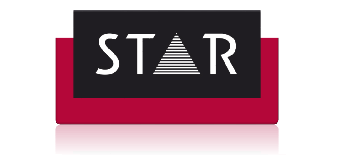German Document Translation
Automotive and Technical Expertise
With over 20 years of experience working with prestigious customers such as BMW, DaimlerChrysler, Mowag, and Tag Heuer, we have developed extensive expertise in the automotive and technical engineering industries. Our translation team is highly skilled in delivering the best technical translations for your projects, ensuring precision and accuracy. This expertise is a key factor in providing high-quality services to your customers. Our commitment to excellence in technical translation helps you maintain the highest standards in your industry.
We understand the complexities and specific terminology involved in automotive and technical translations. Our translators are not only linguists but also subject matter experts who are familiar with the latest industry trends and technologies. This ensures that your technical documents, manuals, and specifications are translated with the utmost accuracy and relevance. By choosing our services, you can be confident that your technical content will meet the rigorous demands of the automotive and engineering sectors.
Government Departments
Providing translation services for government departments demands the highest levels of quality and the capacity to handle large volume translation projects. We collaborate with numerous government agencies to deliver documents in critical areas such as pensions, welfare, immigration, and health and safety. Our translations cover a wide range of languages, including Irish, Chinese, Arabic, Romanian, Russian, Polish, and French, ensuring that we cater to all resident nationalities within the country.
Our ability to manage extensive translation projects with precision and efficiency makes us a trusted partner for government departments. We understand the importance of confidentiality and accuracy in government translations, and our team is dedicated to delivering reliable and timely services. Whether you need translations for policy documents, legal texts, or public information materials, we have the expertise to handle your requirements.
Our translators are well-versed in the specific terminology and regulatory requirements of government documents, ensuring that your translations are not only accurate but also compliant with relevant standards. By partnering with us, government departments can ensure clear and effective communication with diverse populations, enhancing public service delivery and community engagement.
Industry Sectors
We provide professional language services in many industries including Software systems, Agriculture, Industrial machinery, engineering, Robotics and industrial automation.
Call us to day to discuss how our German translators can help you scale your business.
Common Questions About German Translation
What are the additional letters in German, and how do they impact translation?
- German uses the same alphabet as English, but it includes a few additional letters: Ä, Ö, Ü, and ẞ.
- These letters affect pronunciation and meaning. For example:
- An umlaut (Ä, Ö, Ü) signals a sharper sound, often in plural forms (e.g., “Äpfel” for apples).
- The esszett (ẞ) represents a sharp “s” sound, similar to a double “s.”
- While these symbols are relatively common, ensure your website or application can handle them during internationalization.
Why does German text expand dramatically when translated from English?
- German is notorious for being one of the longest languages.
- This expansion isn’t due to greater expressiveness; in fact, Germans are concise.
- The average German word has more than six letters, compared to five in English.
- Prepare for longer text when translating to German. Text can be 30% longer than English.






